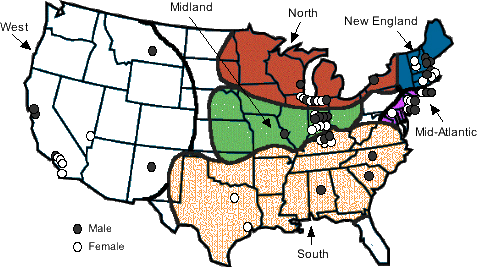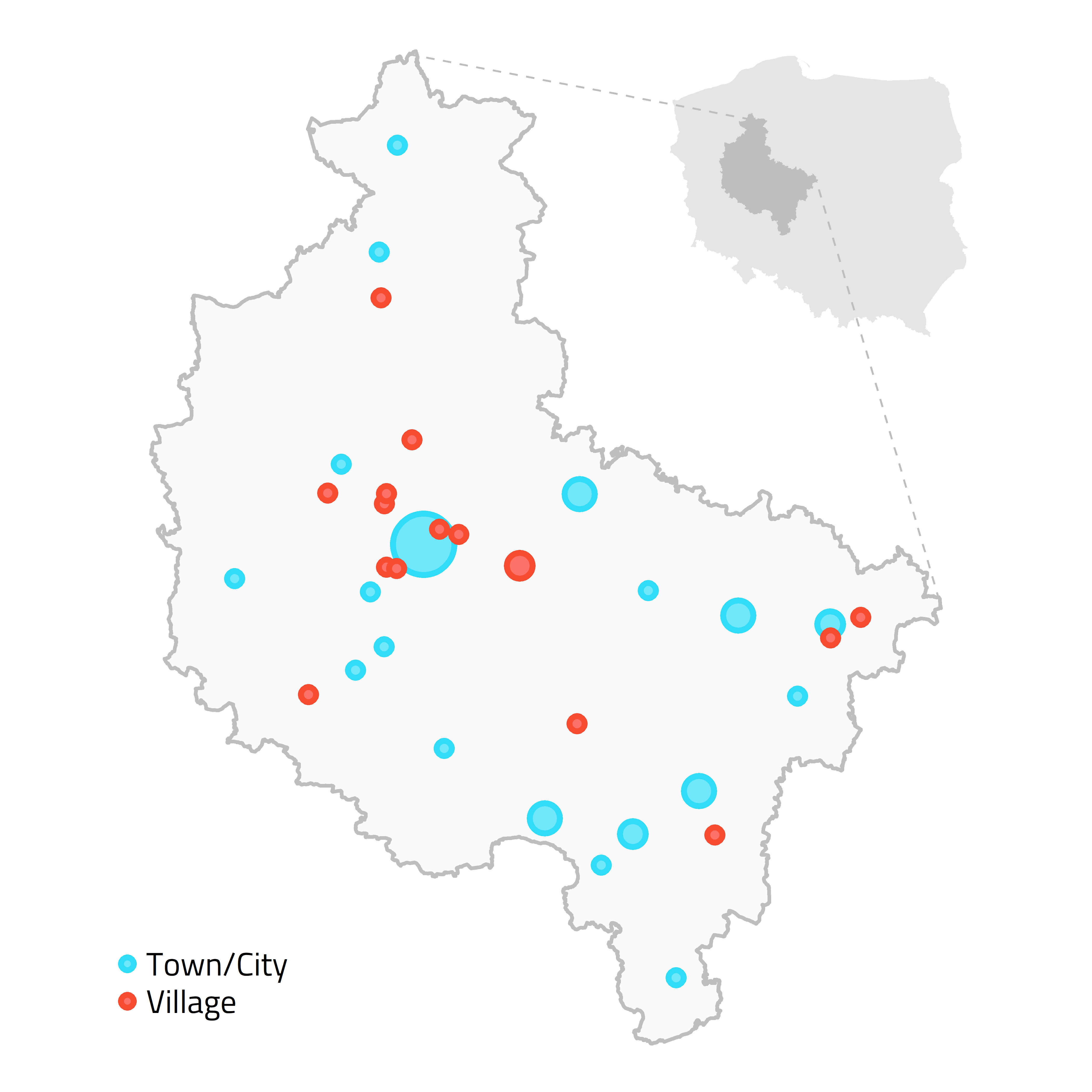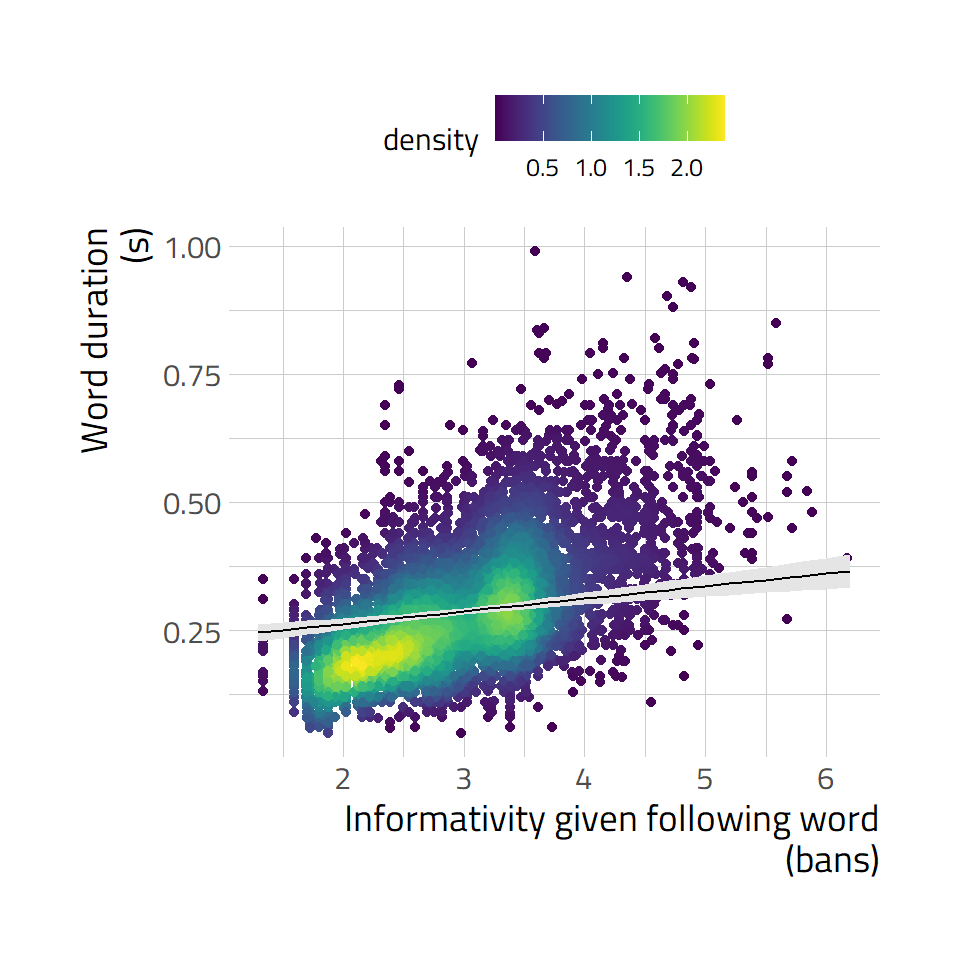
Contextual frequency effects in phonetic variation
Kamil Kaźmierski
June 2024, University of Vienna
kazmierski-vienna2024.netlify.app

Zipf’s brevity law : More frequent = shorter
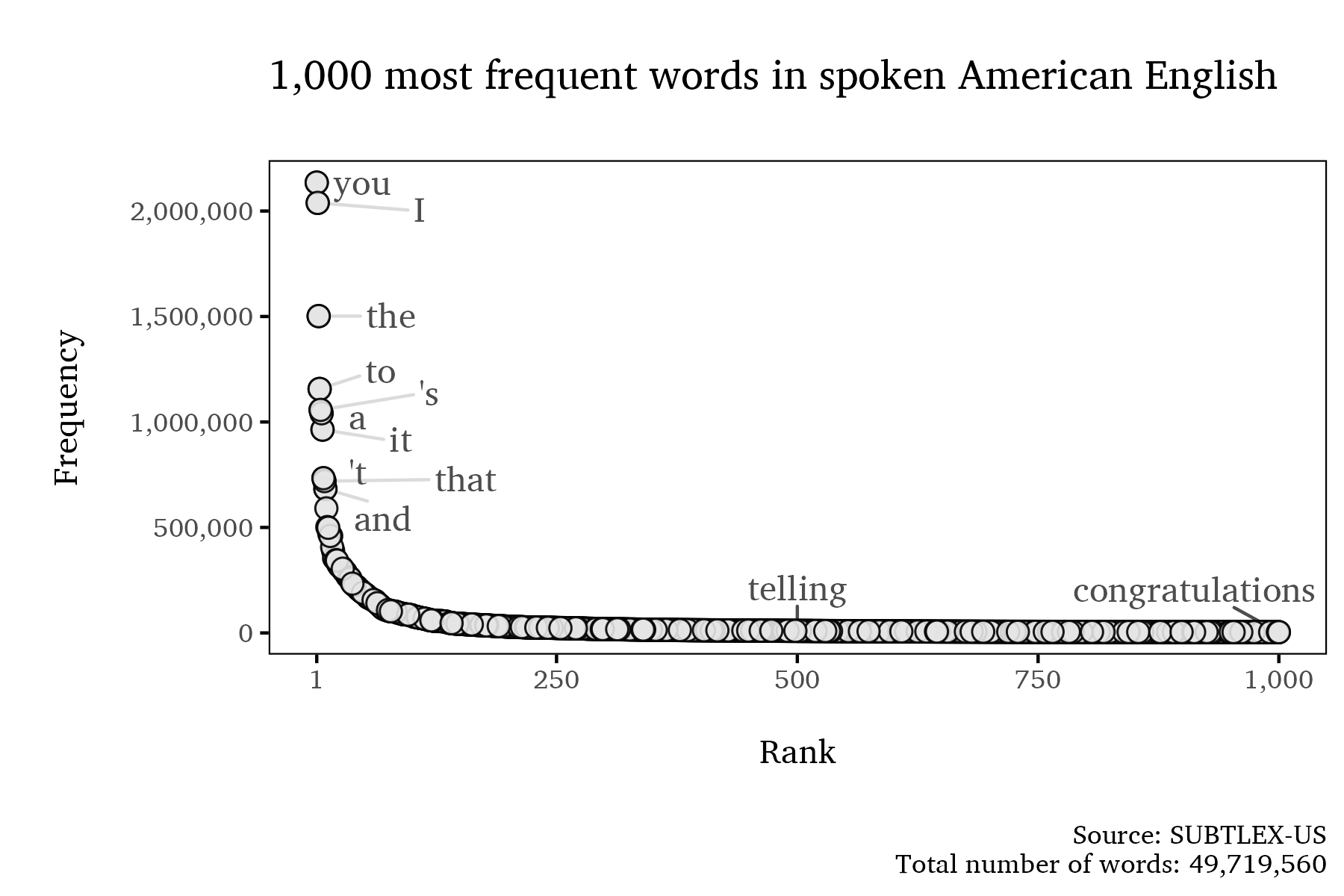
Frequency and phonetic variation
Higher frequency → process more likely
- t/d deletion in American English (Gregory, Raymond, Bell, Fossler-Lussier & Jurafsky 1999)
- and I, bit more
- and I, bit more
- reduction of Spanish syllable-final /s/ to [h] to Ø (Brown 2009)
- ¿Cómo es[h]tás[ø] tú? ‘How are you?’
- reduction of New Mexican Spanish syllable-initial /s/ to [h] (Brown 2004)
- s[h]e ponía a cuidar ‘would take care’
Contextual frequency and phonetic variation
Higher frequency in favoring environment → process more likely to occur
Word-final /s/ voicing in (central) Mexican Spanish
- unos[z] amigos ‘some friends’
- more likely before voiced consonants: regressive assimilation, cf. PL nos Darka [nɔzdaɾka] ‘Darek’s nose’, facebook [ˈfejzbuk]
- words with higher proportion of occurrence before voiced consonants (e.g. debemos ‘we should’) (=higher FFC) voice more often than words with low FFC (e.g. posadas ‘Christmas parties’)
Informativity (=average unpredictability)
Predictability: home course vs. home furnishings
Informativity: scrappy vs. tough
Kaźmierski, K. Under review. The role of informativity and frequency in shaping word durations in English and in Polish.
Words predictable from the following word [=in favoring context] are shorter
Are words typically predictable from the following word shorter in all contexts?
(cf. Seyfarth 2014)
English
β = 0.025, p < 0.001
Polish
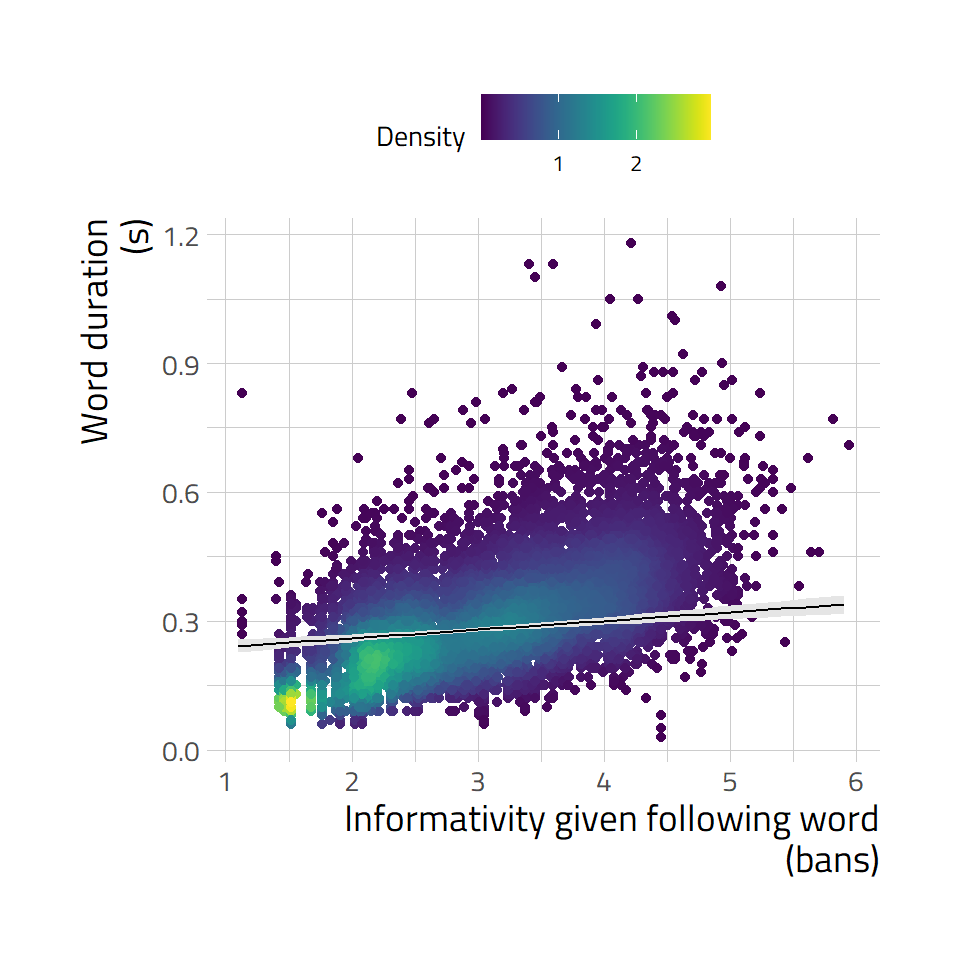
β = 0.02, p < 0.001
Prevocalic /t/-glottaling
what I saw
[wʌʔ aɪ sɔː]
Kaźmierski, K. 2020. Prevocalic t-glottaling across word boundaries in Midland American English. Laboratory Phonology 11(1): 13.
Ex. 1: Intervocalic /t/ as a glottal stop
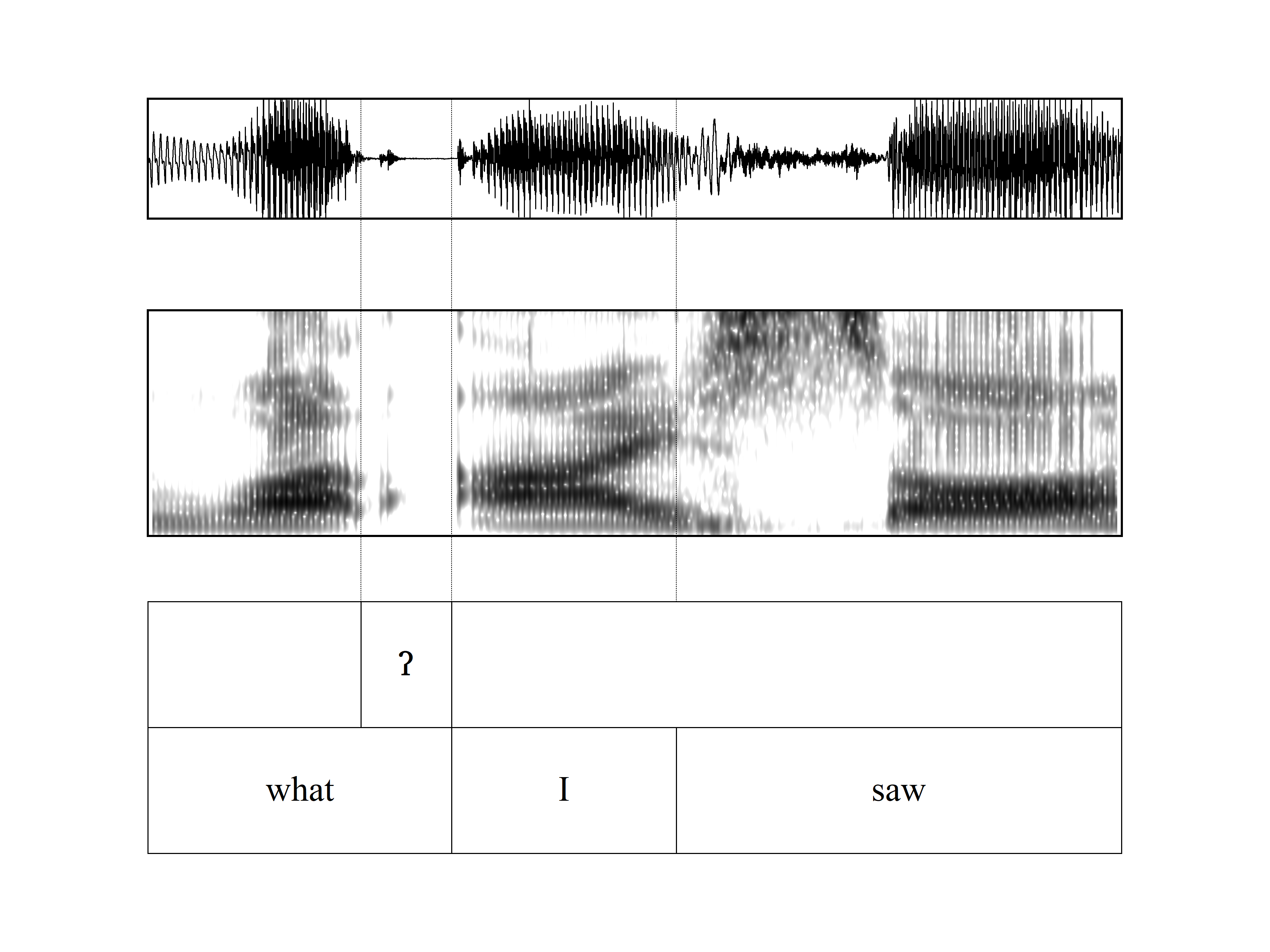
Kaźmierski, K. 2020. Prevocalic t-glottaling across word boundaries in Midland American English. Laboratory Phonology 11(1): 13.
Ex. 2: Intervocalic /t/ as an ‘incomplete’ glottal stop
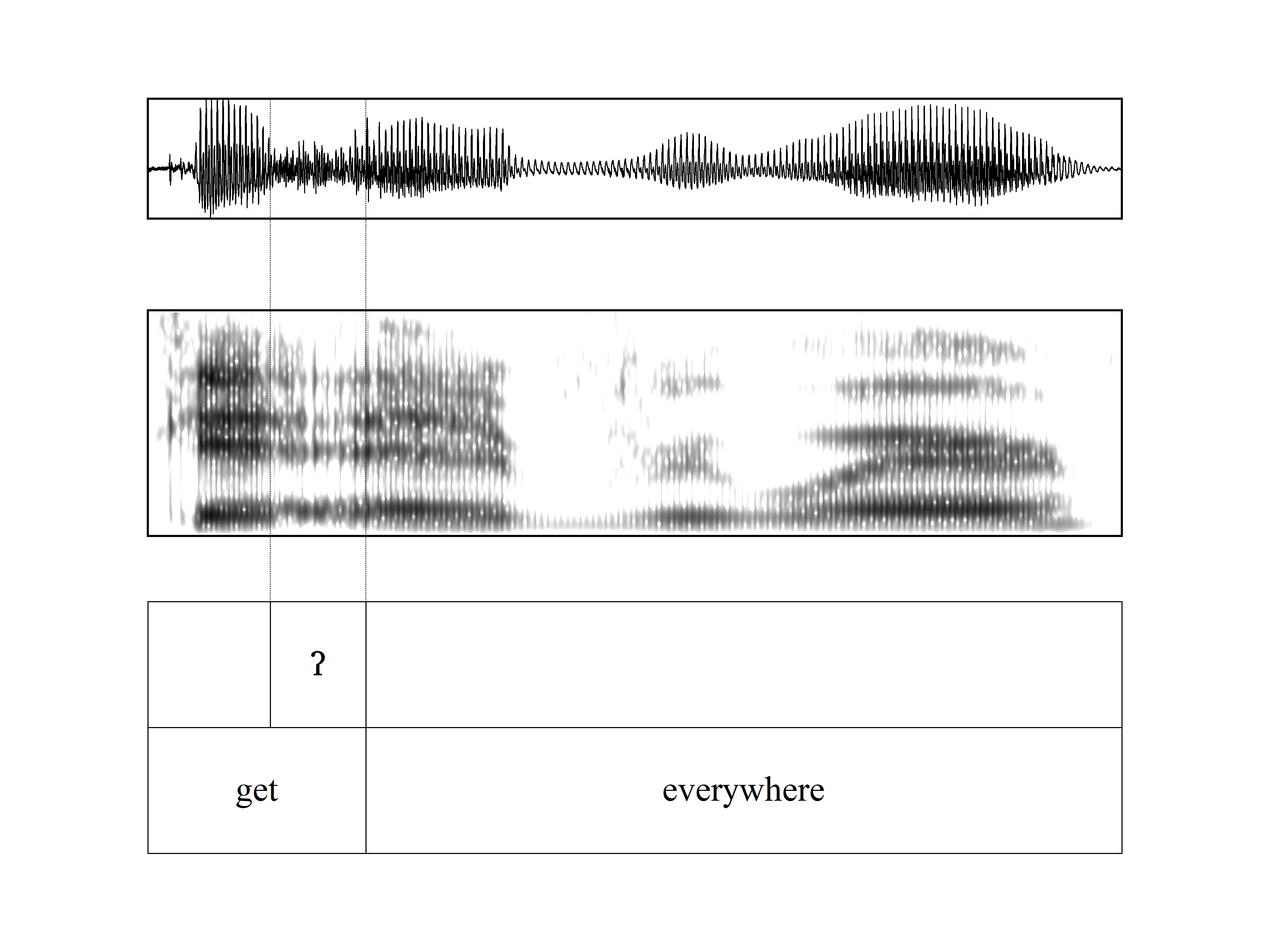
Kaźmierski, K. 2020. Prevocalic t-glottaling across word boundaries in Midland American English. Laboratory Phonology 11(1): 13.
Before consonants [=in favoring context], glottaling is common
Are words typically followed by consonant-initial words more likely to undergo glotalling even before vowels?
(cf. Eddington & Channer 2010)

Kaźmierski, K. 2020. Prevocalic t-glottaling across word boundaries in Midland American English. Laboratory Phonology 11(1): 13.
Word-final /r/-vocalization
river, car
[ˈrɪvə, kaː]
I got this kid, used to live right across from my father’s [ˈfaːðəz] gas station. Probably one of the best car [kaː] thieves, you’ve ever [ˈɛvə] known in your [jə] life. He could get in a car [kaː] and steal that car [kaː] faster [ˈfæstə] than you could get in it with your [joə] key. I take him up to Fall River [ˈrɪvə]… And I parked [ˈpaːkt] my car [kaː] in the lot. I said to the kid, “All right cross the street,” I says, “I want a four-door car [foə doə kaː].”

Before consonants [=in favoring context], /r/-vocalization is more likely
Effect of local context

Kaźmierski, K & Urbanek, K. Variability in word-final r-vocalization in Providence. Poster presented at NWAV48, Eugene, Oregon.
Are words that typically occur before consonants more likely to undergo /r/-vocalization, even before vowels?
No effect of global context

Kaźmierski, K & Urbanek, K. Variability in word-final r-vocalization in Providence. Poster presented at NWAV48, Eugene, Oregon.
- Informativity ✅
- Words that are typically unpredictable are longer
- /t/-glottaling ✅
- Words that are typically followed by consonant-initial words are more likely to undergo t-glottaling
- /r/-vocalization ❌
- No effect of typically ocurring before consonant-initial words found
Discussion 1/3
Implications for speech production
No place for FFC effect in standard models of speech production
- abstract representations
- modular
- feed-forward
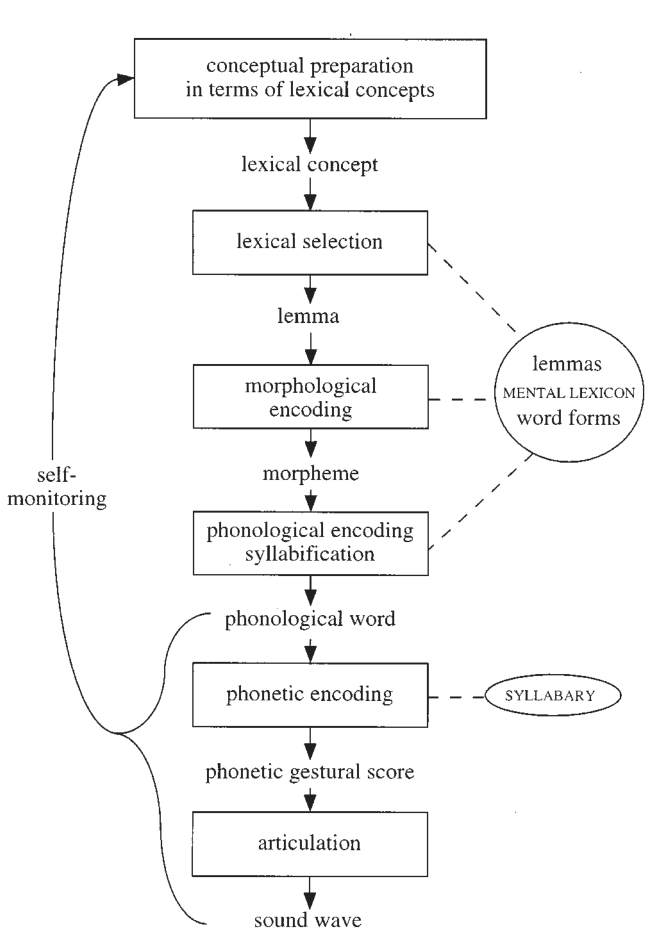
Levelt, Willem J. M., Ardi Roelofs, and Antje S. Meyer. 1999. “A Theory of Lexical Access in Speech Production.” Behavioral and Brain Sciences 22, 1–75.
Discussion 2/3
Implications for phonological representations
Perhaps multiple phonetically-rich exemplars of words stored?
/wʌt/

Bybee, Joan. 2001. Phonology and language use. Cambridge: CUP.
Discussion 3/3
Researcher degrees of freedom
- Operationalization of FFC
- subset of FFC range (Brown 2020)
- Details of statistical testing
- Only FFC vs. both FFC and lexical frequency as predictors in models (cf. Seyfarth 2014)
- what is the actual ‘effect’: effect of FFC or of the interaction of FFC with frequency (cf. Forrest 2017)
Outlook
FFC testable on most (all?) variable word-boundary processes
- French liaison
- petit ami [pətitami] ‘boyfriend’
- linking-r in non-rhotic English varieties
- together again [təˈgeðərəˈgen]; AT für ein [fyʁaɪn]
- pre-sonorant voicing in Poznań-Cracow Polish
- sok malinowy [sɔg malinɔvɨ] ‘raspberry juice’
- prevocalic voicing in Rhineland German
- mit uns [mɪd ʊns] ‘with us’
- << Your idea here >>
Thank you!
kazmierski-vienna2024.netlify.app
